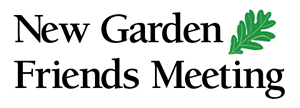Western Friend, May / June 2020
Review of The Kendal Sparrow by Barbara Schell Luetke
Reviewed by David Tucker
Bold voices emerge from a nation wracked by years of war, political division and generational change: The origin of Early Friends was always a colorful tale. Barbara Schell Luetke uses Early Friends as a canvas on which to paint a coming-of-age portrait of individual convincement, ministry, and faithful struggle in her historical novel The Kendal Sparrow. The novel explores the seventeenth-century life and circumstances of Elizabeth Fletcher, but the parallels for today’s young Friends are resonant. Unwinding in four parts, The Kendal Sparrow takes us on the faith journey of a young farm girl from Kendal in Northern England. We meet Elizabeth when she is thirteen and “wanting to be of use,” as her community changes amidst the fallout of the English Civil war. Images of birds provide thematic allusions throughout, beginning with “little sparrow,” the nickname given Elizabeth by her deceased mother. The sparrow is soon met by a larger flock – preacher George Fox and other Early Friends. By the close of Part I, Elizabeth speaks in ministry for the first time and foreshadows her own role in the new Quaker movement: “I see the birth of a new lamb, the gift of it making us happy and hopeful. ”Parts II and III of this novel cover Elizabeth’s convincement and increasing spiritual fortitude. She joins Fox and other young Friends on a long journey in ministry through a string of rural and urban settlements. Many of her traveling companions comprise those known today as the “Valiant Sixty.” Elizabeth’s story shifts dramatically in Oxford. It’s here that she suffers abuse and assault by young Anglican ministers, leaving physical and spiritual wounds that will indelibly color her spiritual journey and final years. Luetke’s telling of this assault is vivid, yet also age-appropriate for young Friends. Part IV carries Elizabeth to Ireland, where she becomes a pioneer of ministry, bringing the message of Light to a still dark land. The novel concludes with Elizabeth returning to Kendal and the family she left behind, where she dies of tuberculosis. Despite her short life, Elizabeth Fletcher was a bulwark among Friends, which Luetke’s novelization makes clear. Also noteworthy in this book is a post-story appendix in which Luetke provides more background on 20 real members of the “Valiant Sixty” who appear in the novel and were under 30 years of age. In my first reading, I likely focused too much on The Kendal Sparrow’s attention to the story of the Quaker movement at large. However, after finishing, I realized the most vivid moments, like this Quaker faith of ours, were intensely personal. I discovered the greatest story depth and personal meaning in Elizabeth’s bout of shaken faith and Luetke’s celebration of the deaf character, Moe. Following the Oxford assault, as Elizabeth seeks an elusive spiritual center, she admits to a weighty Friend: “I, I am unable to sink to the spirit of late.” Who among us hasn’t felt challenged by far lesser demons than Elizabeth’s while trying to worship or find that of God in someone who has wronged us? Elizabeth’s personal and sincere navigation through Quaker faith is an apt reminder that our spiritual path is rarely short and never straightforward. Another welcome flourish on the Valiant Sixty story is drawn from Luetke’s fifty years in deaf education. Early in the novel, Elizabeth finds “that of God” in a deaf girl, Moe, whom she and her aunt take in. Moe’s character development and the role she plays in spiritually anchoring Elizabeth provide warm touches of humanity to the story.
The Kendal Sparrow is an accessible, well-researched novelization of the story of Early Friends.
In all, The Kendal Sparrow provides readers with an accessible, well-researched novelization of the story of Early Friends, as seen through the lens of a dynamic, young female. For that alone, it is a welcome addition to any Meeting library and should be of interest to Young Adult Friends. That it also conveys messages about the personal and sometimes difficult nature of our Faith gives me reason to commend it to all.
David Tucker is a curious spirit, marketing strategist, and reluctant “millennial.” He holds membership at Scarsdale Friends Meeting (NYYM) and currently attends Palo Alto Friends Meeting (PYM).
Barb Luetke can be reached at [email protected] and is available for book discussions by Zoom or in person.
Available at FGC QuakerPress and on Amazon. Please consider rating the novel once you have read it on Amazon and Goodreads.

